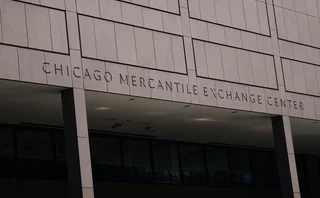
Competition is saving end-users from euro swaps price hikes
Swap dealers are often described as a cartel; right now, they are not acting like one
Swap dealers are often described as an oligopoly – or, less politely, a cartel. It's easy to understand why. The vast majority of the market is divvied up between a dozen-or-so banks, and they enjoy a lot of control over some of its protocols and practices – but what's happening in the euro swap market offers an interesting counterpoint.
For big clients, bid/offer spreads have barely widened over the past year, during a period in which liquidity has been draining from the dealers' go-to hedges. The interdealer market is less deep than it was, as is the Bund futures market. In both cases, banks claim the size of trade they can execute for a given spread is roughly half what it was a few years ago. Put crudely, banks face a choice between hedging immediately – and paying away some or all of their profit – or hedging over a longer period, but accepting more risk in the meantime.
In most manufacturing businesses, increasing raw materials costs would result in the price rising for the customer. So, on the face of it, swaps end-users should be paying a wider spread.
According to one trading head, very senior supervisors have been making this point in private – rather than complaining that regulation is making the business uneconomical, banks should start charging more.
So, why aren't they?
In most manufacturing businesses, increasing raw materials costs would result in the price rising for the customer
The banks put it down to competition, pressure from senior management to grow revenues, and the strategic drive to internalise more client flow rather than pay brokers to find a hedge. To put it more dramatically, if everyone is fighting for their lives – as individuals and institutions – it takes a brave trader to send business elsewhere.
"Everyone is in the mode of ‘We want to win market share, we need to see the flow, we're not prop trading as much, we need to be in front of the client'. And management is beating them up saying ‘We need to be up in the rankings'. So I don't think it's a natural instinct to widen bid-offers," says one fixed-income trading head.
An economist might see this as a collective action problem: if dealers could all agree to widen bid/offers by a minimum amount, and stick to it, decreased liquidity in interdealer swaps and futures would not be an issue.
But that won't happen, and it demonstrates how much competition exists in this peculiar oligopoly.
Only users who have a paid subscription or are part of a corporate subscription are able to print or copy content.
To access these options, along with all other subscription benefits, please contact info@risk.net or view our subscription options here: http://subscriptions.risk.net/subscribe
You are currently unable to print this content. Please contact info@risk.net to find out more.
You are currently unable to copy this content. Please contact info@risk.net to find out more.
Copyright Infopro Digital Limited. All rights reserved.
As outlined in our terms and conditions, https://www.infopro-digital.com/terms-and-conditions/subscriptions/ (point 2.4), printing is limited to a single copy.
If you would like to purchase additional rights please email info@risk.net
Copyright Infopro Digital Limited. All rights reserved.
You may share this content using our article tools. As outlined in our terms and conditions, https://www.infopro-digital.com/terms-and-conditions/subscriptions/ (clause 2.4), an Authorised User may only make one copy of the materials for their own personal use. You must also comply with the restrictions in clause 2.5.
If you would like to purchase additional rights please email info@risk.net
More on Interest rate markets
New benchmark to give Philippine peso swaps a fillip, post-Isda add
Isda to include new PHP overnight rate and Indonesia’s Indonia in its next definitions update
SABR convexity adjustment for an arithmetic average RFR swap
A model-independent convexity adjustment for interest rate swaps is introduced
NatWest Securities US Treasury trading head departs
Jason Sable joined the UK bank in January 2022 from BNP Paribas
CME in talks to clear term SOFR basis swaps
US clearing house has held discussions with some dealers about clearing term SOFR-SOFR packages
Risky caplet pricing with backward-looking rates
The Hull-White model for short rates is extended to include compounded rates and credit risk
The curious case of backward short rates
A discretisation approach for both backward- and forward-looking interest rate derivatives is proposed
Cross-currency swaps will use RFRs on both legs, says JP exec
Despite slow start, all-RFR swaps will become the market standard within a year, according to Tom Prickett
June mid-month auctions – Coupon and yield trends
As Treasury issuance amounts set new records, coupons at the front end of the curve have marched downward, while back-end coupons have lagged. Yield spreads across each popular measure show a consistent steepening of the curve through the first half of…








